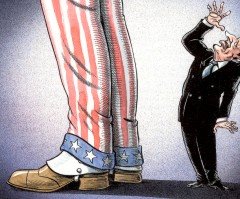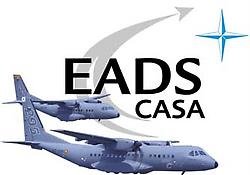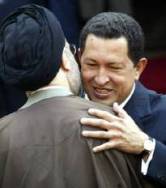Rep. Lantos assails Chavez regime
 The seniormost Democratic foreign policy authority in the US House of Representatives assailed the Chavez regime for a wide range of abuses.
The seniormost Democratic foreign policy authority in the US House of Representatives assailed the Chavez regime for a wide range of abuses.Rep. Tom Lantos (D-Cal.) fired both barrels at Caracas during a recent hearing on democracy in Latin America. He assailed the Venezuelan democratic process as reminiscent of that of the Soviet Union.
"Democracy’s foundations have been systematically undermined by a demagogic leader [Chavez], bent on opposing democratic values and interests," Lantos said. "To the discerning observer, the facade of democracy Chavez has erected cannot hide the destruction he has brought on democratic principles and fundamental freedoms."
"Candidates subservient to Chavez won every seat just like the old Soviet elections," the lawmaker stated.
"Chavez has created a one party state with his authoritarian regime consolidated. Chavez turned his attention and his country’s considerable oil wealth to increasing his stature at the expense of his Latin American neighbors and our own [US] national interests," Lantos continued.
"To insure the recently elected and soon to be elected Presidents of Latin America are not pressured into accepting the oil slick promises of dictators with dollars, we must reengage with the region."
Lantos was one of several US congressmen whom Chavez barred from the country last November during the signing ceremony with Spain to buy EADS CASA cargo planes. While the lawmakers were being harassed at Caracas airport, EADS CASA lobbyists in Washington pressed Congress to earmark money for two planes for the US Coast Guard.














